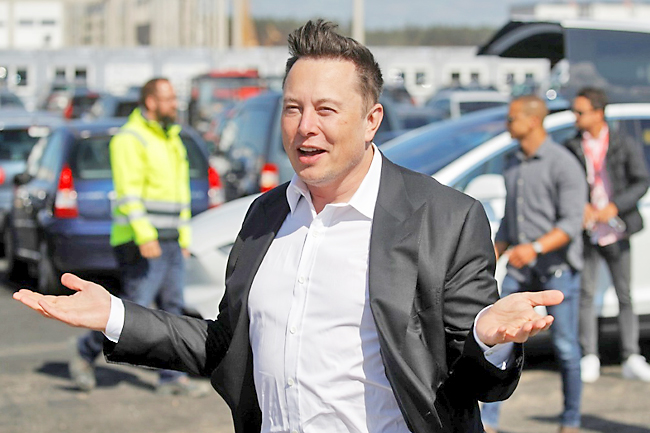WASHINGTON (AFP) – Twitter moved on Friday to defend itself against Elon Musk’s USD43 billion hostile takeover bid, announcing a “poison pill” plan that would make it harder for the billionaire to get a controlling stake.
Musk’s proposed buyout faces several hazards, including possible rejection and the challenge of assembling the money, but could have significant impacts on the key social media service if consummated.
Twitter said its board unanimously adopted a so-called shareholder rights plan, also known as a “poison pill”, which kicks in if an investor buys more than 15 per cent in shares without the directors’ agreement. Musk holds nine per cent.
The manoeuvre makes it harder for a buyer to build too big of a stake without board approval, by triggering an option that allows other investors to buy more of a company’s shares at a discount.
Twitter said the plan, which experts consider a potent tool against corporate raiders, does not prevent discussing or even agreeing to an acquisition.

Musk sent shockwaves through the tech world on Thursday with an unsolicited bid to buy the company, stating the promotion of freedom of speech on Twitter as a key motive for what he called his “best and final offer”.
The world’s richest person offered USD54.20 a share, which values the social media firm at some USD43 billion, in a filing with the Securities and Exchange Commission (SEC).
He has not directly addressed the poison pill, but tweeted after his bid was announced that the board would face “titanic” legal liability if it goes against the interests of shareholders in rejecting his offer.
Analyst Dan Ives predicted that the board’s move would “not be viewed positively by shareholders” given both the potential dilution of stock and the signal it sends of hostility towards being bought. He foresaw a “likely” court challenge.
Musk has already acknowledged he was “not sure” he would succeed and refused to elaborate on a “plan B”, though in the filing he noted a rejection would make him consider selling his existing shares. He also said he “could technically afford” the buyout while offering no information on financing, though he would likely need to borrow money or part with some of his mountain of Tesla or SpaceX shares.
Some investors had already spoken against the proposal, including businessman and Saudi Prince Alwaleed bin Talal.
Morningstar Research analysts echoed that perspective, saying, “While the board will take the Tesla chief executive officer’s offer into consideration, we believe the probability of Twitter accepting it is likely below 50 per cent.”
Twitter stock closed down nearly two per cent on Thursday.
Musk’s move throws another curve into the roller-coaster ride of his volatile relationship with the global social media service, and raises many questions about what comes next.
He was offered a seat on the board but turned it down over the weekend.
Musk’s shock offer to buy Twitter drew worries – and some cheers – over putting the platform in the hands of a mercurial billionaire who advocates generally for few limits on what users can post.
Critics argued that free speech absolutism on social media can be very messy in the real world.
“I am frightened by the impact on society and politics if Elon Musk acquires Twitter,” tweeted Washington Post columnist Max Boot on Thursday. “He seems to believe that on social media, anything goes. For democracy to survive, we need more content moderation, not less,” Boot added.





